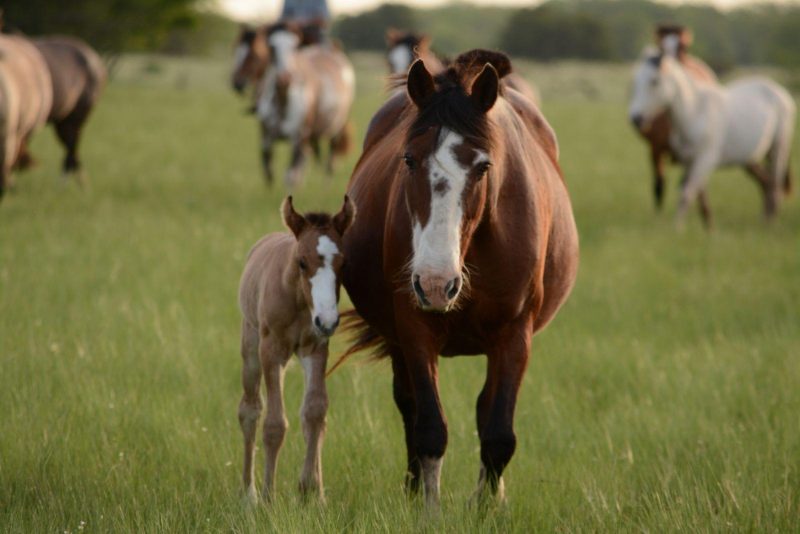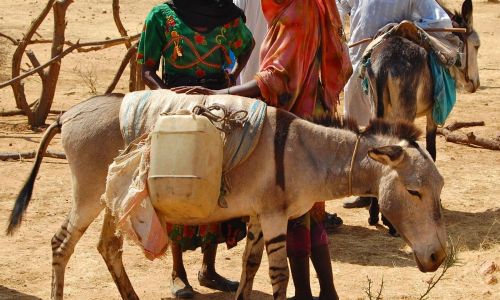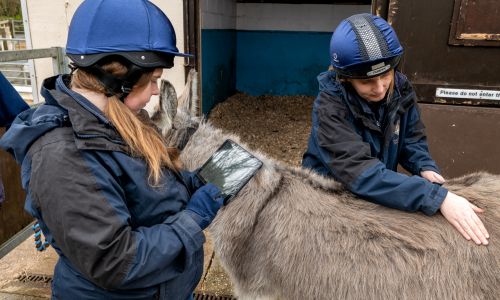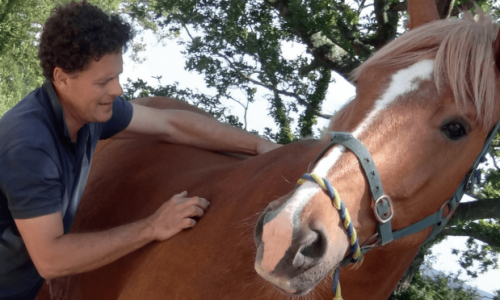Sustainability and Equine Enterprises
For many of us, horses make us feel there are good reasons to get up and out in the morning. We have chosen a way of life that sustains and nourishes us. We increasingly need to look at ways our equine-centred lifestyles can help to protect and regenerate our environment.
Joe Collins
Adapted from an article first published in The Irish Field, by Joe Collins MVB PhD FRSB CSci CBiol MRCVS CertEP CertVR
Many have used the concept ‘enough, for all, forever’ based on the words of an African elder to succinctly define sustainability. Charles Hopkins used the phrase in 2009 to title an article about ‘The quest for a more sustainable future’, in which he hoped that this concept would help frame the global search for solutions to the social, economic and environmental issues that threaten the planet.
I can’t put it any better (only longer!), except to say that sustainability is about meeting the needs of the present in such a way as not to compromise the ability of future generations to meet their needs. Increasingly, even, we understand that it will not be enough ‘to just do enough’ to remain as we are now – we will have to build back better, regenerating the biosphere and ecosystems around us. Anyone running a family business planning to leave something worthwhile to their children and their children in turn, instinctively understands what it takes. Like a stud farm where you invest time, energy and money over many years building a herd with stronger pedigrees, raised on land continually nurtured to give foals the best possible chance of developing into sound horses.
"We want those who come next to be happy, inheriting a healthy environment; sharing it with others, both human and animal. We want them to be part of thriving enterprises that produce products that consumers both want and need."
A basic principle of economics has it that consumers exert pressure along the value chain by expressing preferences. Consumers make choices; and sustainability increasingly features among the issues that drive their choice. Almost all the world’s resources are limited, with regional and seasonal differences – in water, sunlight, soil nutrients, etc. The sustainability of keeping grazing animals is under scrutiny with agricultural practices being examined for the contribution they make to climate change. These range from methane production (ruminants versus horses?); to fertiliser usage (derived from petro-chemicals?); to biodiversity (rooting out hedgerows?) and habitat loss (imported soya linked to rain-forest destruction?); to concerns for animal welfare.
The health and welfare of animals, humans and the environment we all share are interconnected – a concept, ‘One Health’, that veterinary professionals are very familiar with. Welfare of domesticated animals is commonly defined in terms of how well the animal is coping with its environment. Are your horses generally content, coping well with the (inevitable) demands of daily life? For many of us, horses form an essential function, making us feel there are good reasons to get up and out in the morning. Many of us took jobs and sought careers with animals even if there were better paid alternatives. Their welfare is linked with our well-being.
"We have subconsciously chosen a way of life that sustains and nourishes us; we increasingly need to look at ways our equine-centred lifestyles can help to protect and regenerate our environment."

Horses straddle the boundary between livestock and companion animals, legally being a food-producing species in EU law but often bred, reared and kept for leisure and pleasure purposes. Many horse-lovers find the idea of eating horse meat distasteful. They may not know that many horses are slaughtered in the UK/Ireland for consumption in Continental Europe; others are ‘excluded from the food chain’. But how best to dispose of horses in a sustainable manner - respecting their welfare as well as the environment? Euthanasia for all horses might be more ethically acceptable (than horse slaughter) to the public but what of the mass incineration of the resulting remains? Public perception of end-of-life affects how the public view our use of these wonderful animals. Can we learn from the recent experiences of the greyhound industry where public concern over the disposal of no-longer wanted racing greyhounds has cast a shadow over the whole industry?
The public also pay increasing attention to the impact of their activities on the environment. There is increasing awareness of the greenhouse gas effect of animal production, of animals consuming foods that humans could directly consume, of the environmental cost of processing and distributing foods (Tarazona and others, 2020). Corporations increasingly control this chain and are highly sensitive to consumer sentiment, for example in relation to the use of antimicrobial agents in animals. We in the equine industries should pay keen attention to this issue: the growing problem of drug resistance threatens the health of our animals, the future availability of these drugs to us and represents a risk to public health. Consumers of a product may be prepared to pay extra for ‘high welfare’ but also penalise ‘poor welfare standards’ – in food production but also in how animals are used for other purposes such as horse-racing. If we are not mindful, future generations may not support, they may even shun or campaign against our activities. This is the very definition of unsustainability.
"The concept of a ‘social licence’ for the operation of animal sports is gaining traction."
'Social license' is the idea that society should broadly approve of an activity even if many don’t themselves directly engage in it. It’s especially important if that activity is in any way supported by the public purse – as racing and horse sports activities in Ireland are. We can’t ignore the views of persons not engaged in our equine or equestrian activities if we wish to see a sustainable future for these activities. We must engage with those who do not share our views; in particular we need to nurture the support of the next generation, striving to understand how attitudes evolve – this will lead to a sustainable enterprise and activity for the future.
So what can we do as veterinary professionals working with the equine industry and as horse owners ourselves, for a more sustainable future?
- Let’s think about how the principles of the circular economy apply to equine enterprises – not just recycling raw materials such as dung or reusing plastic wrapping, but repairing instead of always buying new and building better design principles into production in the first place – like biodegradable netting for wrapping haylage.
- Can we better promote horses as a grazing animal with a lower carbon footprint than ruminants?
- Can we learn from the regenerative agriculture movement and adopt grazing and other farming practices that help to regenerate soils, ecosystems and local economies?
- Can we better highlight the positive benefits horses confer on humans, on communities and livelihoods, on mental well-being?
- Should we look to breed and keep fewer horses (of higher ‘quality’) and review our feeding and grazing management?
- Could we spread less artificial fertiliser, feed our horses more on fibrous feeds not suitable for humans, plant more trees and hedgerows, sweep up horse-dung, and preserve more land as a natural carbon sink?
- Can we demonstrate that we use medicines, like ivermectin, in a responsible manner safeguarding their efficacy for the future and minimising side-effects such as toxicity to invertebrates? Can we identify opportunities to reduce, replace and refine our use of such drugs in ways that mitigate environmental harm?
- Do we safeguard equine welfare in every practical way possible when we ask them to run, jump or otherwise work for us?
- Can we develop better disposal routes for no-longer-wanted horses in sympathy with environmental and animal welfare concerns?
We might harness better public support for our future activities if we engage in sustainable practices that are in tune with the broader societal trajectory. We should not shy away from the problems that come with keeping and using horses in our enterprises; we should engage with and deal with these in a way that respects people, animals and the environment. We should continually enhance and then promote the positive benefits our equine enterprises can confer on Ireland and the UK, both people and landscape, now and into the future – the very definition of sustainability.
Reference
AM Tarazona, MC Ceballos, DM Broom, 2020. Human relationships with domestic and other animals: one health, one welfare, one biology. Animals 10(1), 43; https://doi.org/10.3390/ani10010043


